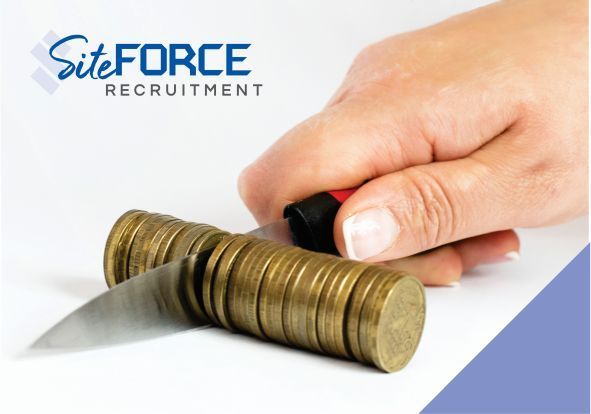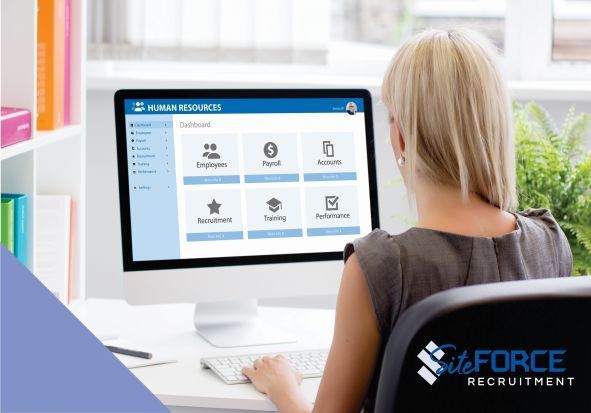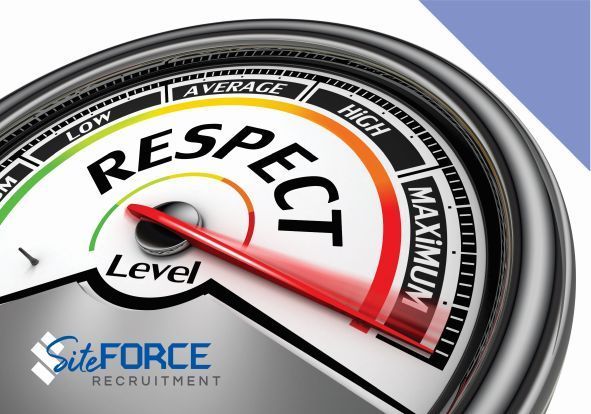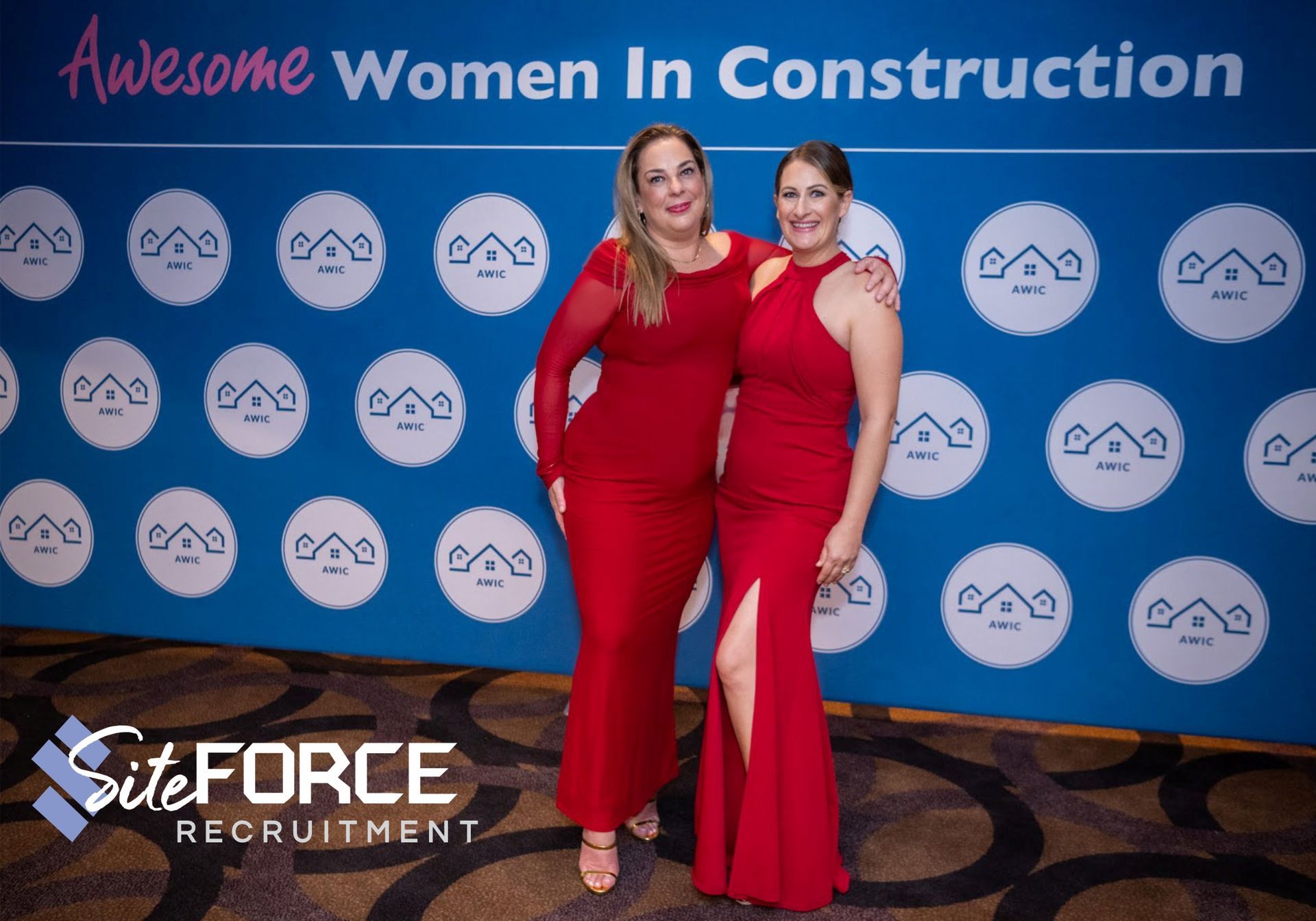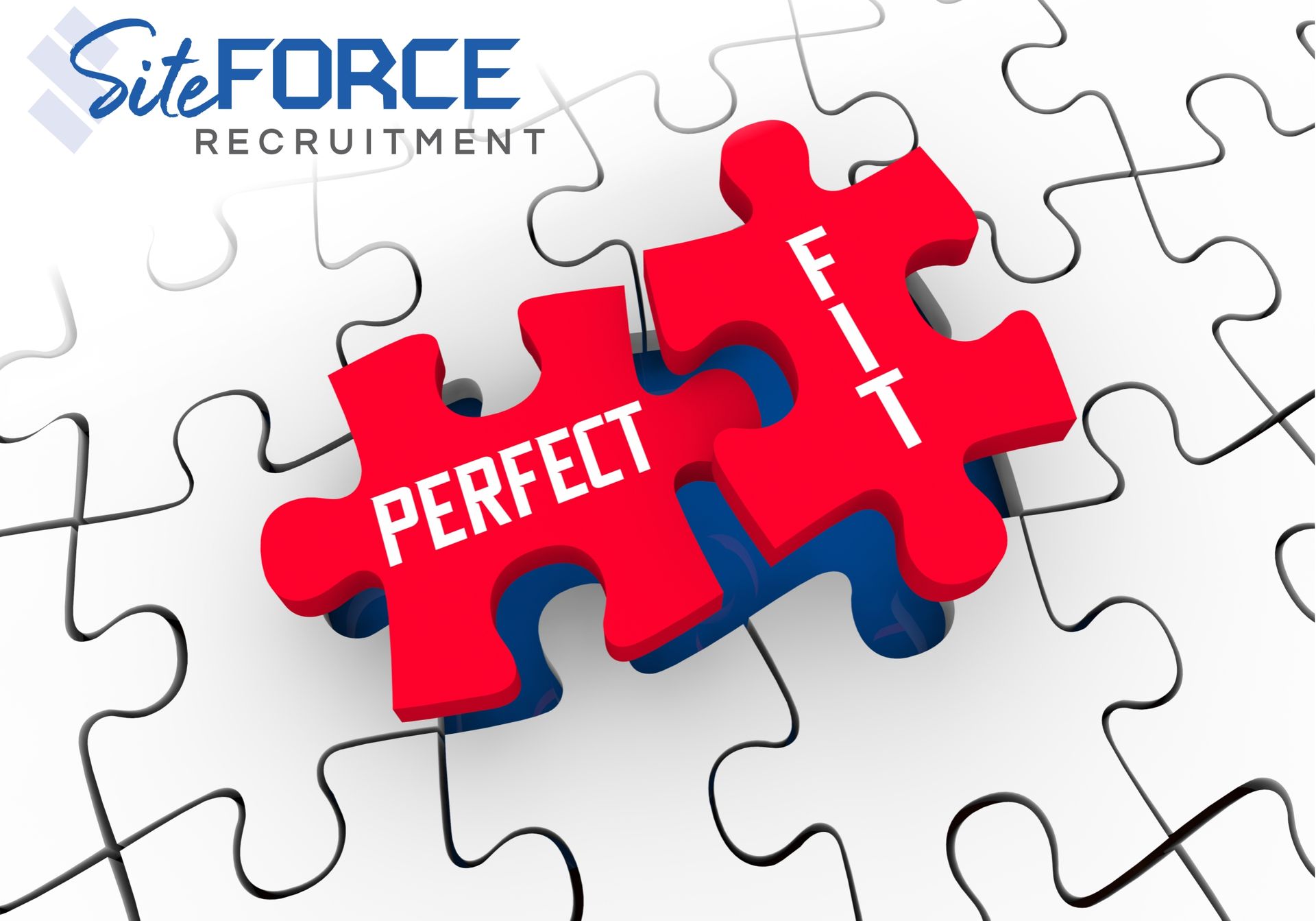USING SUPER FOR YOUR BEST INTERESTS
Early Access to Super, Dental, Housing and Managing Your Portfolio

Hey team! Guess what? You might be able to dip into your superannuation to get those pearly whites sparkling! Whether you need braces, crowns, implants, or even general dental work, your super could have your back (or should I say, your teeth?). So, if you or your dependants are dreaming of a dazzling smile, you might be in luck!
In this article I want to generally cover how to use your superannuation so that it works In your best interests, as I’ve noticed a lot of people do not know this information.
According to Jobs and Skills Australia, the average age for the construction industry is 37 years old. Generally, we don’t think much about our super, waiting for it to accumulate automatically – and for most employees in construction, retirement is a looooong way away.
So here are some ideas to think about, and ask your superannuation fund and/or advisors, for how to make it work in your best interests, as I’ve noticed a lot of people do not know this information.
In this article, I’ll cover: -
1. Free Super Education - attend workshops
2. Accessing Super for dental work
3. Accessing Super on compassionate grounds
4. Accessing Super for house deposits
5. Accessing Super /FHSS financial hardship / home owners
6. Accessing Super for severe financial hardship
7. Accessing Super for temporary Incapacity
8. Accessing Super for permanent Incapacity
9. Accessing Super under compassionate grounds to meet expenses for a dependent
10. Build a strong nest egg for your future
11. Super Reviews – choosing your product/age/risk mix;
12. Get advice
1. Free Super Education - Attend Workshops
Industry Superannuation Funds, like CBUS, BUSSQ etc. have a customer centric focus – meaning they attend workplaces to connect directly with employees and provide education to workers. The education that they provide at these workplace events is brilliant and free. So, attend when there is one. These organisations will update you on the latest changes in the superannuation field, rates and tax treatments, and are available to ask questions. After you, you don’t know what you don’t know, and information is powerful. You can also learn more from the ATO website on accessing your super early at: -
https://www.ato.gov.au/individuals-and-families/super-for-individuals-and-families/super/withdrawing-and-using-your-super/early-access-to-super
2. Accessing Super for Dental Work
Research reveals that more than 2 million Australians avoid or delay visiting the dentist every year because they simply cannot afford it. Thankfully, there is a way that dental work can be paid by your super in certain circumstances, and you don’t have alternate options to cover your expenses (e.g. private health insurance).
If you’re experiencing any of the below acute or chronic tooth pain, you may be eligible to access your super for your dental treatment under the ‘medical grounds’ category before you reach the age of retirement. This may also cover your dependents also (see below).
To access your super for dental work on compassionate grounds, you need to meet eligibility criteria and provide the appropriate documents to support your application to the ATO to cover works including-
· Chronic or acute tooth pain;
· Dental implants
· Dental crowns
· Root canal treatment
· Periodontic treatments;
· Braces/orthodontic care
· Oral and Maxillofacial surgeries.
You’ll need to consult with a qualified dental practitioner and a dental specialist or GP to prove you’re eligible to access your superannuation for dental work. These documents need to be signed and completed no more than six months before the dental treatment. They can assist you in acquiring the documentation for the early release of your super which will include:-
· An itemised quote or unpaid invoice for the required dental treatment;
· A medical report stating the dental issues are causing you chronic or acute pain;
· A copy of your treatment plan, including all stages of the treatment.
Understanding what is involved will help you move quickly if these circumstances arise, and planning ahead is best if you have time.
3. Accessing Super on Compassionate Grounds
The ATO advise that you can access super early on compassionate grounds including:
- medical treatment for you or your dependant
- medical transport for you or your dependant
- modifying your home or vehicle to accommodate special needs arising from your or your dependant's severe disability
- palliative care for your or your dependant's terminal illness
- death, funeral or burial expenses for your dependant
- preventing foreclosure or forced sale of your home.
For release on compassionate grounds, you need to meet all eligibility conditions and provide the relevant documents to support your application. Applications can be made via ATO Online. The super you withdraw on compassionate grounds is paid and taxed as a normal super lump sum.
4. Accessing Super for House Deposits
The First Home Super Saver (FHSS) Scheme allows first home buyers to make contributions to their super, then withdraw those contributions for a deposit to buy or build a home to live in.
While it’s not possible to use your entire superannuation savings, the First Home Super Saver Scheme (FHSSS) allows you to withdraw an eligible portion of your super contributions to help you buy or build a home to live in.
The scheme aims to make it easier to buy or build your first home, but there are rules around who can use the FHSS and when you can get your money out.
How to make first home super saver contributions: There are two types of contributions you can put towards your home deposit with the super saver scheme; (1) salary sacrifice contributions; and (2) voluntary contributions from your take-home pay. Talk to your payroll office to start salary sacrificing, or if you are making after-tax voluntary contributions, there will be BPAY details in your member details with your super fund.
The super contributions you put in the FHSS scheme will also increase by an interest rate set by the Government. These 'deemed investment earnings' are meant to represent investment returns on your contributions.
Eligibility: To qualify for this first home super scheme, you must:
· Be aged 18 years or older
· Have not previously owned property or vacant land in Australia (including investment properties)
· Have not already tried using this scheme to access your super
· Currently be house hunting or looking to buy or build a property within the next 12 months
· Planning to live there for at least 6 of the first 12 months you own it.
You must buy a property or vacant land in Australia, not a mobile home (e.g. caravan, RV motorhome, houseboat, tiny house).
How much you can withdraw: The type of contributions you make will affect how much money you can withdraw from your account. You can withdraw up to:
- 85% of eligible before-tax contributions
- 100% of eligible after-tax contributions
- 100% of the deemed earnings.
You can't include the contributions your employer or spouse makes for you, such as Superannuation Guarantee (SG) contributions or spouse contributions.
How much can you put towards your deposit: If the people you are buying a home with are also eligible for the scheme, they can currently make contributions of up to $15,000 per year to their super, up to a total of $50,000 per person. This means a couple could potentially put a total of $100,000 towards their deposit from their super. Check with your super fund for the potential to use this scheme and the current criteria and be mindful that there are limits to how much you can contribute to your super each year, without incurring extra tax.
How to use the FHSS Scheme: If you are eligible and want to withdraw money from your super for a home deposit, here's what you need to do.
1. Make salary sacrifice or voluntary contributions to your super account (keeping in mind the criteria and limits);
2. Use your myGov account to apply to the Australian Taxation Office (ATO) for a FHSS determination
3. When you receive your determination, apply to the ATO to release your super
4. The ATO will tell your super fund to release your super contributions
5. Your super fund will send the ATO your money
6. The ATO will withdraw tax, then pay you the remaining amount
7. You get a home loan and buy or build a home within 12 months from the date you made your release request
8. You notify the ATO within 28 days of entering into contract.
The ATO currently says it can take as many as 15-25 days to receive your money from them, so it's important you are not in a hurry to put down the deposit.
Eligibility criteria (current): To qualify for this first home super scheme, you must:
- Be aged 18 years or older
- Have not previously owned property or vacant land in Australia (including investment properties)
- Have not already tried using this scheme to access your super
- Currently be house hunting or looking to buy or build a property within the next 12 months
- Planning to live there for at least 6 of the first 12 months you own it.
You must buy a property or vacant land in Australia, not a mobile home (e.g. caravan, RV motorhome, houseboat, tiny house).
How much you can withdraw: The type of contributions you make will affect how much money you can withdraw from your account. You can withdraw up to:
- 85% of eligible before-tax contributions
- 100% of eligible after-tax contributions
- 100% of the deemed earnings.
You can't include the contributions your employer or spouse makes for you, such as Superannuation Guarantee (SG) contributions or spouse contributions.
What else to consider: While contributing to your super might help you save money for a house deposit; it may not be right for everyone.
- Withdrawing super for a home deposit may impact your retirement savings in your super account.
- Your employer's super contributions and spouse contributions can't be used for your deposit, so the scheme requires that you can save enough money to make extra contributions.
- Depending on whether you make before-tax or after-tax contributions, you might not be allowed to withdraw the full amount to use for your deposit.
- Your contributions earn a deemed rate of interest set by the Government, rather than earning the full investment returns your super fund is making.
- When the ATO sends you your super saver money, they charge tax on your before-tax contributions and deemed earnings.
- You will need to include the FHSS amounts you receive from the ATO as income when you fill in your yearly tax return.
Get advice: A financial advisor can help you understand how to use the First Home Super Saver Scheme in your personal circumstances and how to get the most from your super.
Whether or not you are eligible for the first home scheme, your super is likely to be one of your main sources of income in retirement, so it's worth considering whether you could afford to make regular contributions to your super anyway. To learn more the FHSS scheme, visit the ATO website at:
https://www.ato.gov.au/individuals-and-families/super-for-individuals-and-families/super/withdrawing-and-using-your-super/early-access-to-super/first-home-super-saver-scheme
State government concessions: The FHSS scheme is separate to other concessions offered by state governments. If you want to access state government concessions as a first home buyer, you will need to check with the relevant state government authority to confirm you meet the eligibility criteria for each concession.
5. Accessing Super/FHSS financial hardship / home owners
You may still be eligible to use the FHSS scheme, even if you have previously owned property in Australia, if the ATO determines you have suffered an FHSS financial hardship that resulted in a loss of ownership of all property interests.
The events that could result in the loss of property interests include:
· bankruptcy
· divorce, separation from a de-facto partner, or a relationship breakdown
· loss of employment
· illness
· being affected by a natural disaster.
This hardship process is only for those who wish to use the FHSS scheme. Refer to the below links for further information on how to apply for early access if you're experiencing severe financial hardship unrelated to saving for your first home.
Find Out More at:
https://www.servicesaustralia.gov.au/how-to-apply-to-release-your-superannuation-early?context=21971
https://www.ato.gov.au/individuals-and-families/super-for-individuals-and-families/super/withdrawing-and-using-your-super/early-access-to-super/first-home-super-saver-scheme#ato-Studyandtrainingsupportloans
6. Accessing Your Super for Severe Financial Hardship
You may be able to withdraw some of your super if you are experiencing severe financial hardship. Access on grounds of severe financial hardship is not administered by the ATO. You need to contact your super provider to request access due to severe financial hardship. There is eligibility criteria depending on your age, so chat directly with your Super fund to discuss your personal circumstances and if this applies to you.
Find out more at:
https://www.ato.gov.au/individuals-and-families/super-for-individuals-and-families/super/withdrawing-and-using-your-super/early-access-to-super/when-you-can-access-your-super-early#ato-Accessduetoseverefinancialhardship
7. Accessing Your Super Due to Temporary Incapacity
You may be able to access your super if you are temporarily unable to work, or need to work fewer hours, because of a physical or mental medical condition.
This condition of release is generally used to access insurance benefits linked to your super account. You'll receive the super in regular payments (an income stream) over the time you are unable to work. There are no special tax rates for a super withdrawal due to temporary incapacity. Withdrawals are paid and taxed as a super income stream.
Contact your super provider to request access to your super due to temporary incapacity and to ask about insurance attached to your super.
Find out more at:
https://www.ato.gov.au/individuals-and-families/super-for-individuals-and-families/super/withdrawing-and-using-your-super/early-access-to-super/when-you-can-access-your-super-early#ato-Accessduetotemporaryincapacity
8. Accessing Your Super Due to Permanent Incapacity
You may be able to access your super if you are permanently incapacitated. This type of super withdrawal is sometimes called a 'disability super benefit'.
Your fund must be satisfied that you have a permanent physical or mental medical condition that is likely to stop you from ever working again in a job you were qualified to do by education, training or experience.
You may still be eligible to withdraw your super where you meet the above criteria, but are undertaking other work, such as light duties in a different position or casual work in a different field. You can receive the super as either a lump sum or as regular payments (income stream).
Contact your super fund to request access to your super because of permanent incapacity. Find out more at:
https://www.ato.gov.au/individuals-and-families/super-for-individuals-and-families/super/withdrawing-and-using-your-super/early-access-to-super/when-you-can-access-your-super-early#ato-Accessduetopermanentincapacity
9. Accessing Your Super under compassionate grounds to meet expenses for a dependent
There are limited circumstances where you can access your super on compassionate grounds to meet expenses for you or your dependent (spouse, child, a person you are in an interdependent relationship with, or a person who is substantially financially dependent on you).
Once again there is criteria to meet, but if you do, you may be able to have super released on compassionate grounds to meet expenses for:
- medical treatment for you or your dependant
- medical transport for you or your dependant
- modifying your home or vehicle to accommodate special needs arising from your or your dependant's severe disability
- palliative care for your or your dependant's terminal illness
- death, funeral or burial expenses for your dependant
- preventing foreclosure or forced sale of your home.
Find out more about the compassionate circumstances at:
https://www.ato.gov.au/individuals-and-families/super-for-individuals-and-families/super/withdrawing-and-using-your-super/early-access-to-super/access-on-compassionate-grounds
Find out what dependent means, visit:
https://www.ato.gov.au/individuals-and-families/super-for-individuals-and-families/super/withdrawing-and-using-your-super/early-access-to-super/access-on-compassionate-grounds/access-on-compassionate-grounds-what-you-need-to-know#Accessingsupertopayexpensesforsomeoneels
10. Build a Strong Nest Egg For Your Future
Creating a retirement strategy can look different for everyone. If you are considering using your super for a house deposit as a first home buyer, by accessing some of the voluntary contributions you made, it may be worth weighing up your options and seeking professional financial advice.
Of course, your financial planner may have a different idea, so if you have one, bring them into the conversation too so you have all the facts and can weigh what is best for you.
11. Super Reviews – choosing your product/age/risk mix
The Fair Work Commission is currently undertaking a Workplace Reform Consultation on modern awards that stipulate that an employer needs to make superannuation contributions to a ‘default’ superannuation fund for the benefit of an employee who has no chosen super fund, as the Commission is wanting to review the default fund terms.
Whilst you can rest assured that Fair Work will look to reviewing default fund terms, I would recommend that you undertake your own review regularly.
Superannuation is one of the largest investments you will ever have, so it’s worth taking the time to check your options and decide what is in your best interests. The options you choose can make a big difference to how your super grows. In general the portfolio mixes that super have are: -
- Growth 85/165 or 100: An investment mix of around 85% in shares of property, and 15% in fixed interest or cash. Or 100% in shares or property for a ‘high-growth’ option. The aim for a higher average return over the long term, meaning higher losses in bad years than those you would experience with lower risk options.
- Balanced: The mix is the same as above, but the ratio is around 70/30 or 50/50 for a moderate option. The aim is for reasonable returns, but less than growth to reduce risk of losses in bad years. Those losses usually occur less frequently than in the growth option
- Conservative: A mix is 30/70 and aims to reduce the risk of loss again and accepts a lower return over the long term.
- Cash: This is usually 100% deposits with Australian deposit-taking institutions or in a ‘capital guaranteed’ life insurance policy. This type of portfolio guarantees your capital and accumulated earnings cannot be reduced by losses on investments.
- Ethical: A lot of super portfolios offer an ethical option these days. This is intended to screen out investments in companies that don’t meet certain environmental, social and governance standards. An ethical option can sit anywhere on the risk spectrum – from high growth to conservative.
Your financial circumstances can change over time, you risk tolerance changes, and time horizon. Reviewing your portfolio gives you the opportunity to review fees and the investment performance of the fund and check them against relevant benchmarks to see if it meets your expectations. After all, it is your super, and it’s your choice.
If you are young, you may have a higher risk tolerance than if you are soon to retire. You can assess your portfolio’s asset allocation to ensure it reflects your risk tolerances and whether you have long-term or short-term goals. Adjustments may be needed to maximise investment performance and reduce risk.
If you receive a raise, you may want to look into ways to increase contributions, such as salary sacrificing or making additional voluntary contributions, to ensure you fulfil your retirement savings goals. Alternatively, if you suffer a financial setback, you may need to reduce your contributions.
It is also worth studying your super fund’s insurance options, such as life insurance, total and permanent disability (TPD) insurance, and income protection insurance. Evaluating the sufficiency of your coverage in light of your present circumstances and needs. Consider changes in income, dependents and debt levels to ensure that your insurance coverage adequately protects you and your loved ones.
12. Get Advice
Financial advisors can help you review and plan your superannuation for a comfortable retirement, but don’t leave it until you’re retiring. The tweaks to your super fund throughout your working life can have a consider impact on your quality of life and lifestyle – even throughout your working life.
I know it’s tempting to compare your super performance with your colleagues. But it is much more intricate than that. Working with a financial advisor is a collaboration. They will take the time to understand your current position and needs, your financial dreams, fears, and everything in between.
A financial advisor can help you understand how to use super in your personal circumstances and also tell you of the changes or opportunities that have come into play since your last review.
Whether or not you are eligible for any of the above, your super is likely to be one of your main sources of income in retirement, so it's worth considering everything in the mix. Research the ATO website, your Super Fund website, and talk with your Super Fund, Accountant and Financial planner/advisor to learn more.
Disclaimer:
This article is not intended nor gives advice on superannuation and taxation; it is given to provide information for you to start your investigations into what potential superannuation can offer in your particular circumstances. Everyone’s personal circumstances are different, ages are different, and aspirations and goals are different.
Information is current at the time of publication. Use the links provided or contact your Super Fund to get the latest information.
Our Superpower
Our leading 'superpower' is attracting and retaining quality team members who share our values of honesty, integrity, diligence, and service, allowing us to deploy quality team members on client sites quickly.
Our team member's superpower is being motivated, prepared and ready to enthusiastically contribute to the projects at hand, more than just a pair of hands.
Related articles:
Read other informative articles for both employers and workers at: https://www.siteforcerecruitment.com.au/blogs
Chantal Penny is the Director with Superpowers of SiteForce Recruitment. A thought leader in the industry, Chantal, based on her expertise and industry perspective, offers unique guidance, inspiration, and influence in the industry. Chantal Penny is also a thought leader in the industry with her Podcast, Talent Instinct, which is available at:
https://talentinstinctpodcast.libsyn.com/site
At SiteForce Recruitment, we specialise in labour-hire and permanent recruitment in the construction industry. We are committed to valuing people, safety and wellbeing, collaboration, trust and, of course – results!
CONNECT with us via our contact page or bookings links on our website if you are looking to recruit for, get your dream job, or join our amazing labour force team.



